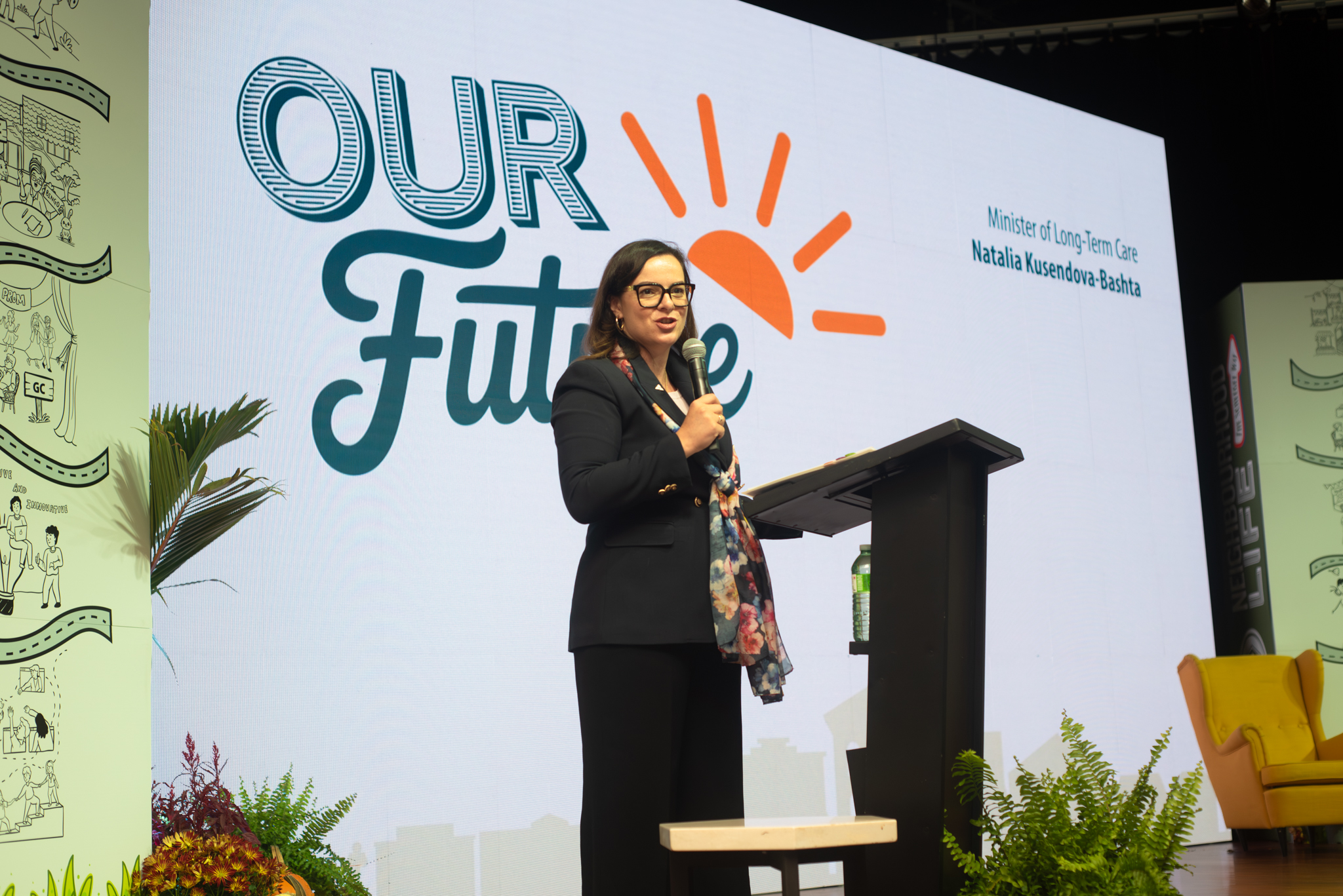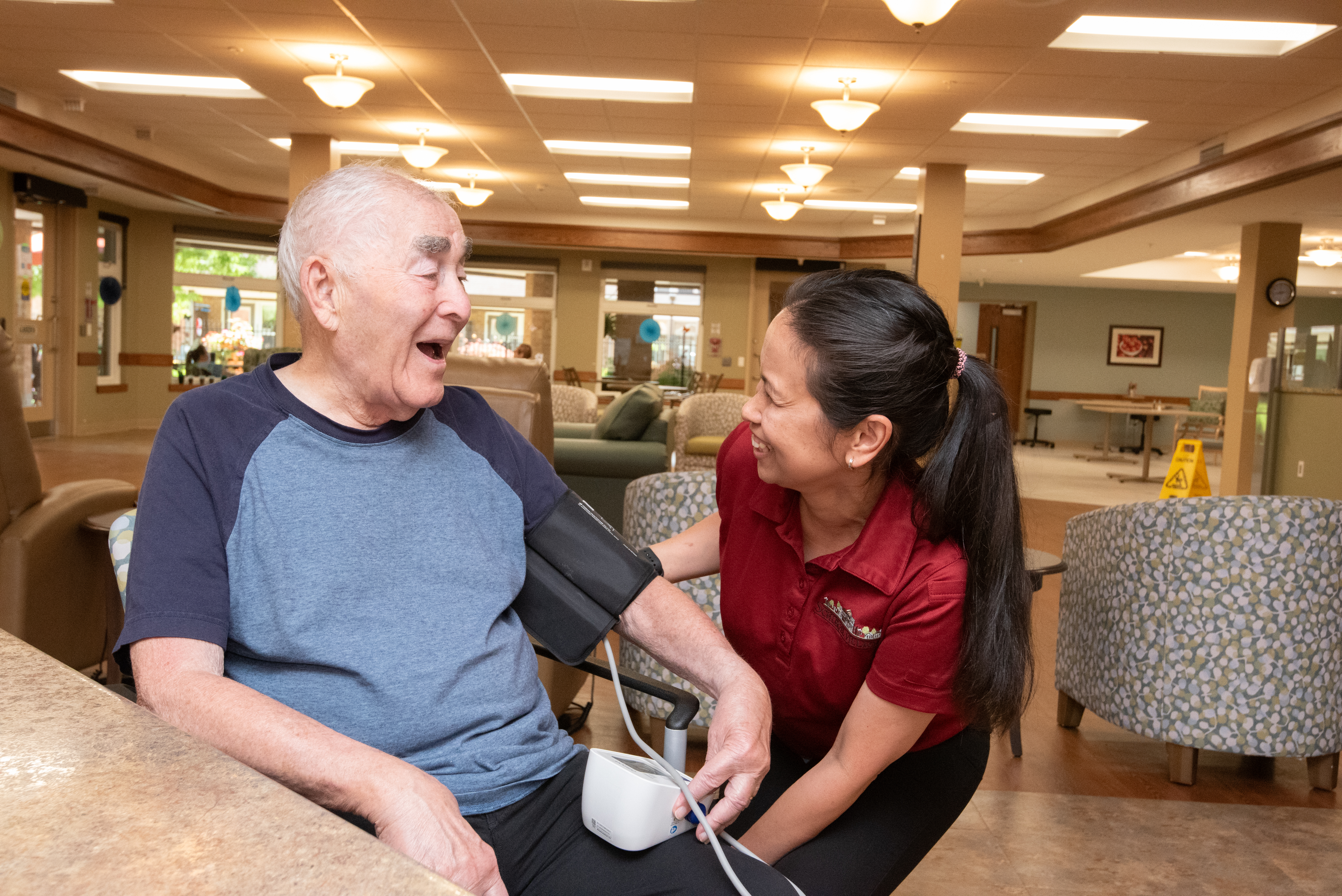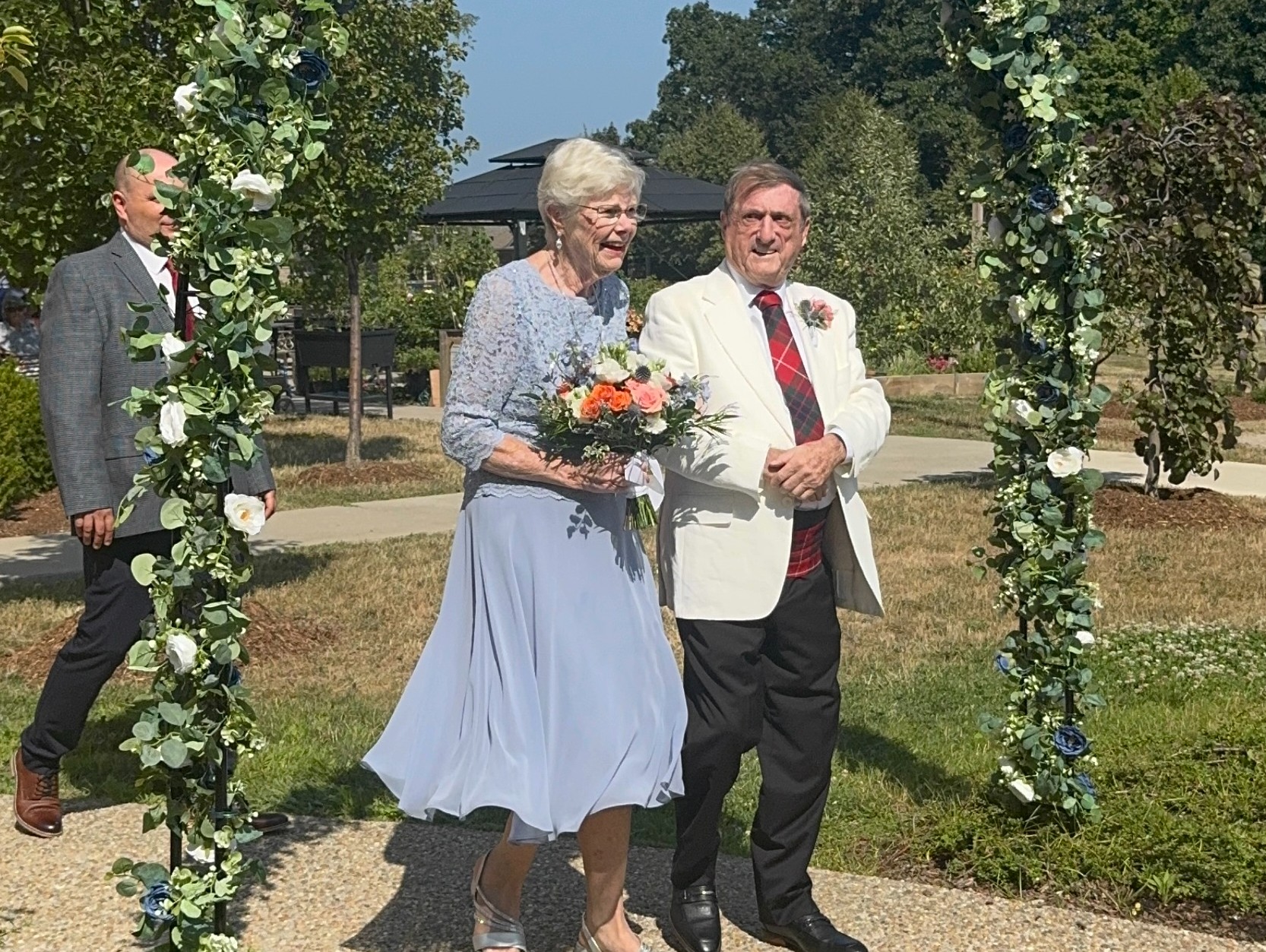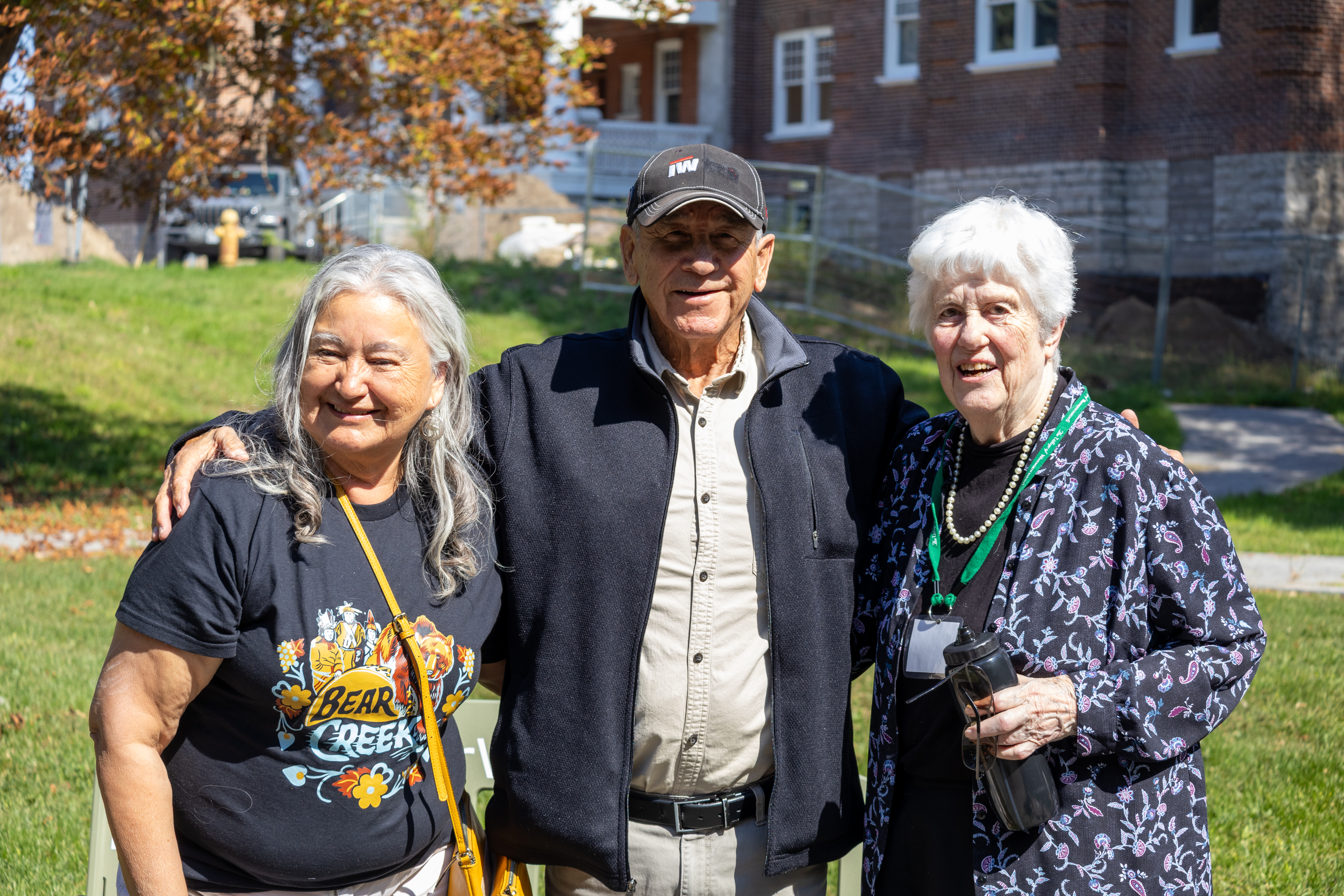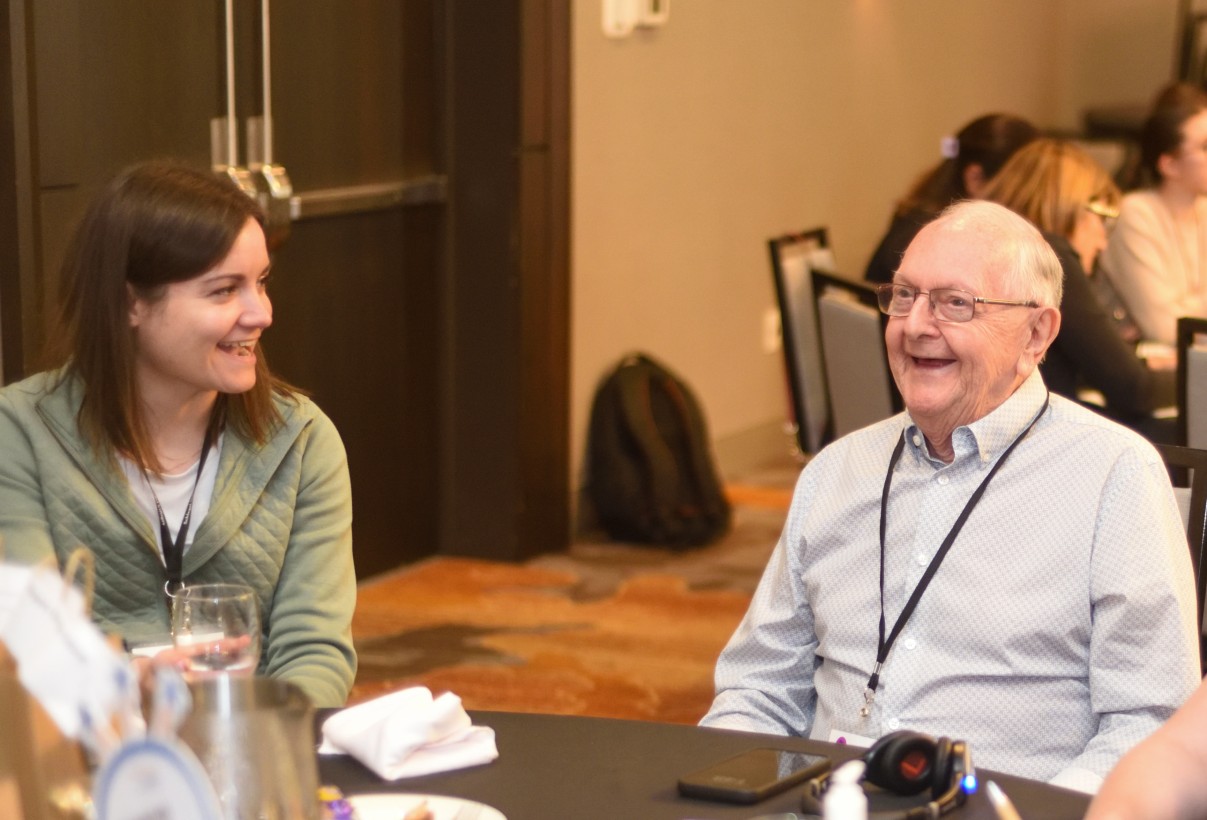The entire cycle of human development and the complexities of ‘being’ rather than ‘doing’ is the focus of a compelling discussion led by Nancy Fox during her concurrent breakout session at the annual Schlegel Villages leadership retreat this spring.
As a respected leader in the movement to change the culture of aging, Nancy has a wealth of experience in the elder-care sector and a keen understanding of team development in the face of organizational transformation. Under the premise of human development, Nancy speaks of some key reasons organizations fail in their quest for positive change.

Caregivers must find balance between a state of 'being' and
of 'doing' in order to be present with those they serve.
She circles it back to the stages of human development. Children have an innate ability to live in the moment, Nancy says, collapsed within their own imagination and their immediate feelings, simply in a state of being; they are “being-rich.”
Adolescence offers a strange mix of childhood crossing over to the pressures of adulthood. It’s here that a state of “being” begins to vie for space with a “doing” mentality that can so easily override our ability to be mindful and present in the moment. In adulthood, ‘doing’ takes ever almost entirely.
“We still have both sides of our nature,” Nancy says, “but there is a lot to do when you’re an adult. “ ‘Doing’ is not a bad thing – there’s a lot that needs to be done and we’ve got to do it – but if we’re only ‘doing’ and we’re not accessing that ‘being’ side of us then we’ve lost a huge part of what makes us human and we’ve lost our connection to this universal life force of wisdom and creativity.”
Beyond adulthood is another period of transition Nancy refers to as senescence, the point in life when one is no longer required to do things but instead can choose to do them. She is in that point in her own journey, eager to take on new challenges that give her a sense of meaning.
Lastly, there is elderhood, which in its true form reverts a person back into a state of ‘being’. Connection between elders and the brightness of children are pure and natural, as both are ‘being-rich’ and in the moment when they are together.
In a society filled with instant gratification and information at the tip of our fingers, adulthood is creeping in on childhood, threatening to rob young people of the state of ‘being-rich’ too early. Likewise, adulthood threatens elderhood as it falsely inspires people to fear old age and cling to the vestiges of life as and adult, which is impossible.
Far too many people have lost the ability to tap into their sense of ‘being’ and Nancy urges the people who have gathered to listen this day to reconnect with it, for in doing so they can find a clearer path to true well being, both personality and within their villages.
“Embracing our own being is the gateway to tapping into the universal life force of energy that connects us all,” Nancy says. In the fast-paced field of health and long-term care, a sense of ‘being’ is possible, “but only if we are truly present in those acts of service.”
For caregivers to give the best of themselves to those they serve, they must be present in each moment, even as the endless list of things that must be done looms large. They must find a way to that state of “being” in the process, and in doing so they can find the right balance to carry them forward in service.
- Previous
- View All News
- Next
